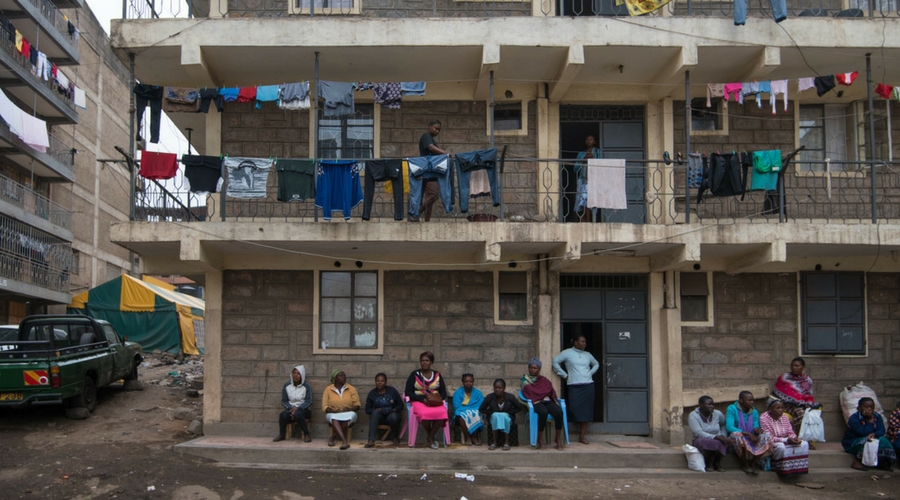Tabitha – a domestic worker in Kenya – knows what it will take to build a more human economy
Tabitha Muwikali, a domestic worker in Nairobi, Kenya has big ideas about how the government can improve the lives of domestic workers—through regulating wages.
“One way the government can improve the lives of domestic workers is regulation of our wages. I’d like the government to be really involved in what domestic work[er]s do, and the regulation of our pay…It would go a long way to ensuring we are fairly paid and that our living standards would improve.”
For the last eleven years Tabitha has washed dishes, cleaned houses and laundered clothes for inconsistent and extremely low pay. Her employers often don’t value her work, and some even look for excuses not to pay her.
“I could be doing a lot more hard, manual work than other people, but still get paid less.”
Around the world, domestic work is undervalued. While women like Tabitha are trying to work their way out of poverty, work like cooking, cleaning and washing clothes is often lowly paid and unregulated. This is in part because it is seen as ‘women’s work’, and therefore considered less valuable.
Tabitha’s wages depend on the work she is able to find. If she doesn’t work, she doesn’t get paid. This makes every month hard, not knowing if she will have enough money for her family’s basic needs.
To respond to the instability, Tabitha started Bidii Women’s Group alongside other domestic workers with support from Oxfam’s local partner, NOPE. In the women’s group, Tabitha and her colleagues provide support to one another and have started a weekly collection that is redistributed to members in need.
“Since starting the Bidii group, my life has been better. I didn’t know that people could come together and help each other in times of need.”
NOPE also educates domestic workers like Tabitha about their rights as workers and creates a safe space to share their working conditions and develop strategies to manage difficult situations with employers. NOPE visits Tabitha and the Bidii group to check in on how they are being treated—and to talk about the ways the situation for domestic workers could be improved.
Tabitha is one of 2.2 million people in Nairobi that work in the informal sector. Approximately one quarter of domestic workers are aware of policies and laws which set out their right to decent working standards.

Kenya has yet to ratify the International Labour Organization’s Convention 189 that sets the labour standards for domestic work. As a result, women are left vulnerable to unregulated wages, working hours and benefits.
This type of inequality is not inevitable. Women like Tabitha are standing up all around the world to demand their rights be respected and that their governments build more human economies. We need to stand with them.

